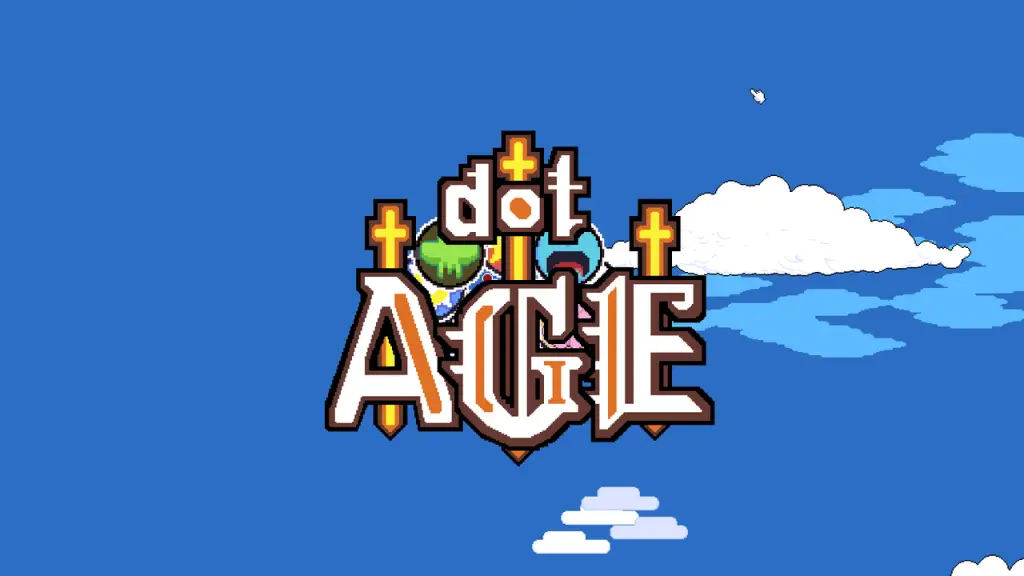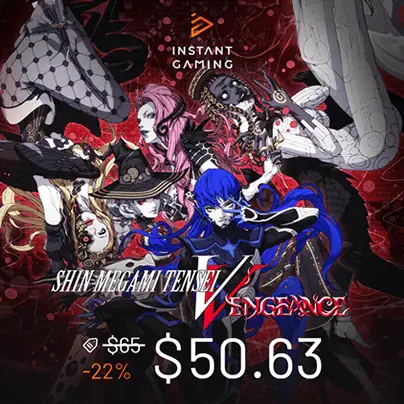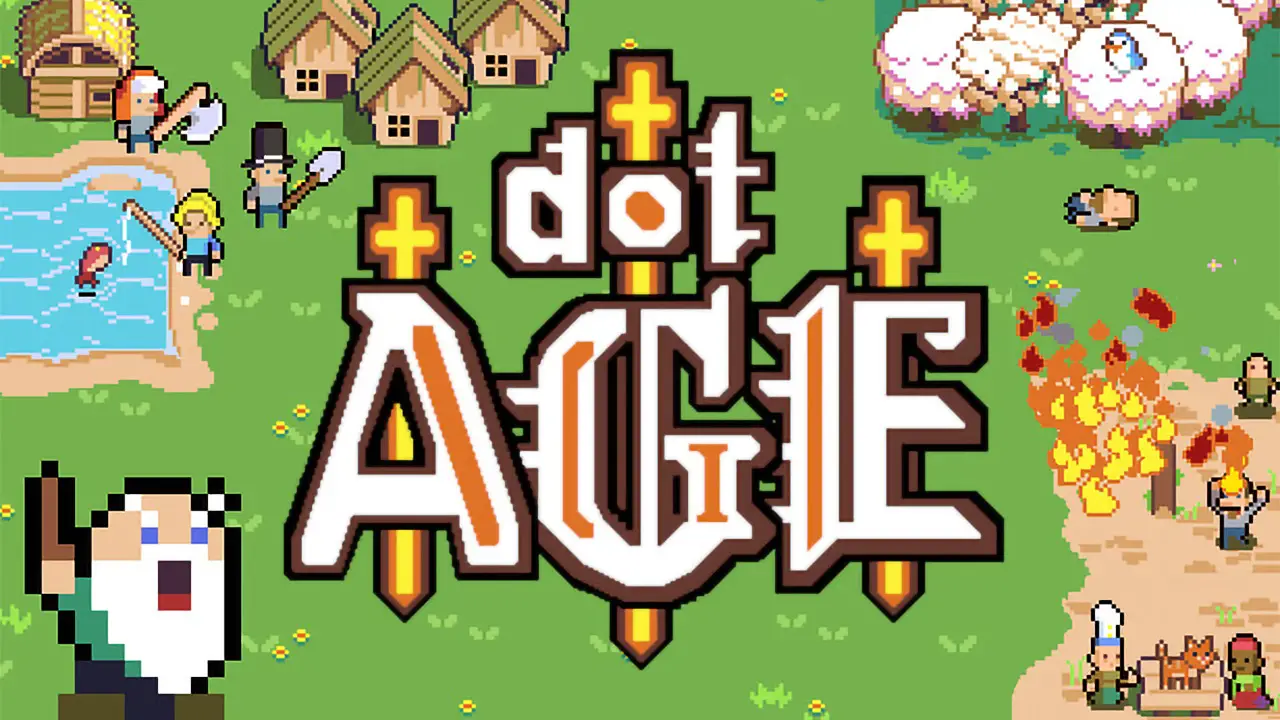After nearly a decade spent in development making sure that every element falls into place. dotAGE, the highly anticipated roguelike turn-based city builder is out now and is available for download on Steam.
Developed by Michele Pirovano, a one-man Italian indie studio. dotAGE promises a merciless campaign to both new and old audiences of the genre daring enough to partake in the ruthless survival story that awaits them. It comes as no surprise that our expectations are high. We’re eager to know if we will be rewarded deserving of a gaming experience deserving of the long wait, so I won’t be taking any more of your time. Let’s find out in this review.

A wolf in sheep’s clothing
Don’t let the superficial features, like the cutesy style and pixel graphics, fool you. dotAGE is unassuming at first glance, but the reality is, it isn’t your run-of-the-mill city builder; It’s an apocalypse survival posing as a turn-based strategy.
You start by playing a simple resource management for a tiny village, and then, you blink and find yourself in a micro-hell situation; desperately trying to survive a winter with over 100 Pips, no food, and to add to the chaos, a building is on fire. It will definitely catch the unaware off guard, as the game does a great job of hiding the nitty-gritty until you actually go over and over it repeatedly. And oh, what’s this? It’s a roguelike?! Nobody told me it was a roguelike! Yes, and we’re barely scraping the dotAGE-iceberg.
There’s the fate system. The fate system is what determines what doom event will occur next depending on the world balance (well, talk about this in a bit) you currently have. The world itself is dynamic. There are seasons and all that jazz. There’s the impending doom, which includes, but is not limited to, disease, fear, and heat… a lot of heat. Finally, the most important thing you, as the elder, have to remember is that you are the key. Without you, there would be no one to lead your Pips against the apocalypse.

Gameplay
At its core, dotAGE is identical to most of its peers: stylized, turn-based strategy in nature and flaunting feature(s) they want to highlight but fall short because another component did poorly. What sets dotAGE apart and makes it stand out is the audacious way it makes use of that ‘weakness’ and completely turns it in its favor. Integrating not one, not two, but a few too many features, blending the game together. Yet somehow, it works well, and each feature complements the other.
The meat of the game revolves around your village, or rather, you, managing your village. Starting out plays like your conventional city builders: you first establish your town center, then you expand your borders by constructing signposts and this lets you gain access to more resources and, finally, continually improve quality of life by various means through the research tree. If that’s the case, then what makes this game unique from the many turn-based games that came before it? How does that roguelike feature make it any better?
Features
Basics
You play in a turn-based fashion using a day-night cycle–an implementation you don’t often see in this kind of genre, and even more so, it’s a feature that you don’t see well-utilized when present. Your Pips will dictate how much you can do within the day, and pressing the sun button will end your turn. In tandem with the previous feature, is the worker-placement mechanics. You assign Pips a job to do or activate an action, forcing you to micromanage your village resources while stressing about the underlying survival theme of the game.
Hazards
Talking about survival, several factors could influence how your run will go: Buildings could catch fire, Pips might go rogue, and random animal attacks might occur. If that wasn’t enough, then the presence of seasons-varying from summers with blistering heat or winter that’s freezing cold, also threaten your village. So, aside from the calamities, know that just about anything and everything will try and kill you. Every action will have a subsequent reaction, meaning that the stakes are high. All of this combined is what makes up the fate system, so let’s talk about that.
The Fate system
The fate system is the deciding factor on what kind of doom event you’ll get next, depending on the world balance you currently have, and the world balance (the boxes you see on top of your screen) is simply a reflection of what’s happening in your game. Do you have enough buildings that cool your Pips or give out hope? If not, x leads to y, and so on and so forth.
Carefully strategize what you will do for the day–whether it’s collecting food so the villagers don’t starve, setting up a new building that helps fight against the omens of destruction, researching a memory to improve the village, and even as simple as dismantling a simple shrub–will mean the difference between survival as you have to balance between sustaining your village and expanding to further progress the story.

The Story
It’s pretty straightforward: Survive or die trying.
You assume the role of the village Elder who foresees a vision of the future, and it doesn’t look good. You see a vision where you and your Pips meet with demise and are annihilated. Frightened by this revelation, you and a select few venture out to find a new place to establish a new settlement in hopes of avoiding the aforementioned doom event.
You stumble upon a valley and start working on building the new village right away. However, as things start looking good, you once again receive a vision and see that there is no escaping from the events that will lead to their downfall. With their fates sealed, how far will your determination take them? Will your leadership prevail against the tragedies you will encounter, or in this battle for survival, is it your destiny to just accept annihilation?
Worldbuilding and Resource management
Building placement
The hardest part of the game is when you’re just starting out. You have to be really strategic. The map is limited, and you have to place your town center somewhere with a lot of structure slots while being near crucial gathering spots. Keep in mind that the number of buildings you can make is limited until you make a signpost and expand your territory, and it only gets harder from there.
Another thing to take note of is knowing what and what not to place next to each other. Some buildings have synergies, so placing them beside each other helps in increasing their production, but in the opposite fashion, some buildings have space requirements preferring to be detached and wont function if not properly positioned.
food and research
When it comes to the basics, securing food early on is essential. If you don’t, it will have a domino effect on your resource management going forward. You start with 4 Pips, and feeding them won’t be that hard until you start expanding. The more you expand, the more food you need. Collect berries and wood right away.
Dig a well and place farms around it to get extra yield. When you think the amount of food you have and the level of agriculture is sufficient, then you can proceed to build a Thinker’s post. The Thinker’s post is the 2nd most important building after your 1st bivouac. It’s the one that will allow you to unlock features such as new buildings, specialized jobs, etc.
pips
Lastly, manpower. Sooner or later, 4 Pips won’t be enough to support you. You will have to increase your manpower, and you do that by erecting housing and procreating. Yes, you have to procreate. How else do you think you’ll get more Villagers? Magic? Storks? Magic storks? There are no magic storks! There is only the apocalypse! The only magic in this game is how Pips procreate, and if you wanna know how, play the game!

Progression
It’s unusual for a city builder to combine roguelike and survival elements into one, even more so on a turn-based strategy, but that’s how it is in dotAGE. It’s not the usual ‘one and done’ type of game. Because of the roguelike element, you have to play again and again to get a better grasp of the rhythm and the mechanics. While you play repeatedly, the game only gets easier because, aside from your goal of surviving the plagues, you also earn memory points. These points accumulate every time a story ends, and after that, your elder starts to remember more. These memories then translate to features such as new buildings and specialized roles that carry forward into your next runs through the study and the research tree.
Additionally, there are three more elders you can unlock. You get them by proving your mettle: beating the story and changing your fate.

Final thoughts
“Design so simple; that’s why it’s so complicated.”
While the game may catch your eye because of the vibrant colors and the cozy pixel-style ambiance, it will definitely make you stay for the experience. It’s humble but not inadequate. The time spent in polishing every aspect really shows through. The game will surprise you with just how deep the attention to detail goes, whether it’s the story or the gameplay.
Let’s end this review by reiterating what I said earlier. dotAGE is stylish and feature-packed and piles layer after layer of elements that add to its complexity. It’s a game where both new and old can find something to appreciate and enjoy. For novices just getting into the genre, dotAGE is definitely a challenging initiation. It’s a slow burn, but it’s the feeling of wanting to overcome the frustration that makes you keep on going.
For the veterans already well-versed by its predecessors and contemporaries, perhaps it won’t be the game itself but the implementations that make dotAGE a great pick-up. Finding what makes this unique from the rest of how a feature is better implemented than the others. Perhaps it’s both. Overall, dotAGE is a wonderful roguelike turn-based strategy city builder and comes highly recommended. It’s a challenge worth taking, and every minute is well spent.









